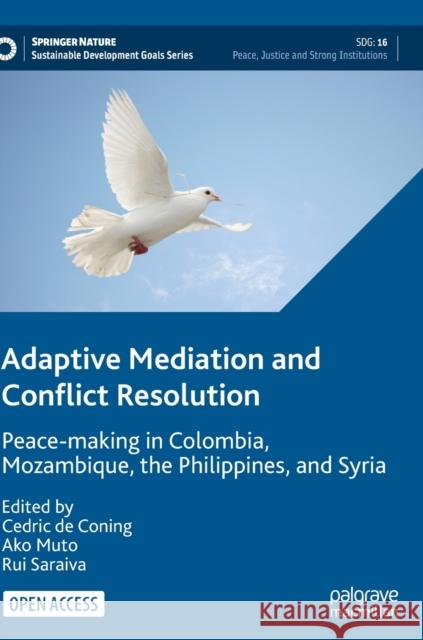Adaptive Mediation and Conflict Resolution: Peace-Making in Colombia, Mozambique, the Philippines, and Syria » książka
topmenu
Adaptive Mediation and Conflict Resolution: Peace-Making in Colombia, Mozambique, the Philippines, and Syria
ISBN-13: 9783030925765 / Angielski / Twarda / 2022 / 220 str.
Adaptive Mediation and Conflict Resolution: Peace-Making in Colombia, Mozambique, the Philippines, and Syria
ISBN-13: 9783030925765 / Angielski / Twarda / 2022 / 220 str.
cena 201,24
(netto: 191,66 VAT: 5%)
Najniższa cena z 30 dni: 192,74
(netto: 191,66 VAT: 5%)
Najniższa cena z 30 dni: 192,74
Termin realizacji zamówienia:
ok. 16-18 dni roboczych.
ok. 16-18 dni roboczych.
Darmowa dostawa!
Kategorie BISAC:
Wydawca:
Springer Nature Switzerland AG
Seria wydawnicza:
Język:
Angielski
ISBN-13:
9783030925765
Rok wydania:
2022
Ilość stron:
220
Waga:
0.41 kg
Wymiary:
21.01 x 14.81 x 1.42
Oprawa:
Twarda
Wolumenów:
01
Dodatkowe informacje:
Wydanie ilustrowane











